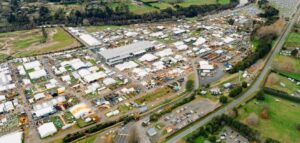Te whakamahara me te atawhai
Rose Marsters and Emily Ranginui break down some of the deeper values of Matariki
https://vimeo.com/342866420/5f4bbc8e71?fbclid=IwAR0mdwGHv4XU_yA2ohwNneqCdLjir-WEg3SsuNmGZCM0tCIH1SHmMlX5MMg
Rose Marsters is Pūkenga Āwhina in the Centre for Education and Foundation Pathways and Emily Ranginui is a student learning advisor from Wintec student learning services.
Whanaungatanga, is a relationship built through shared experiences and working together that acknowledges individuals experiences and provides people with a sense of belonging. It serves to strengthen each member of the community.
It is an idea that is very important to Rose and though she has celebrated Matariki for many years with her whanau; she is pleased with the expanded acknowledgement of Matariki in the wider community, such as the upcoming celebrations planned by Wintec.
Rose describes Matariki as “he wa maumahara”, which means a time to remember. Specifically to remember those who have gone before, and upon whose shoulders we stand.
“I think it’s exciting, to remember the people of the past and to give back to the community.”
For Emily, Matariki is also about remembering to care for those around us, by checking in on whanau to see “where they are at, and whether they are safe, healthy, able, and have everything they need.”
Matariki is an important part of the process of whanaungatanga, or Whakawhanaungatanga, not only because it strengthens individuals with the support of their whanau and community but is also a time that allows them to mourn and remember their loved ones, and to be strengthened in resolve by the legacy that is left for them by their tūpuna.




